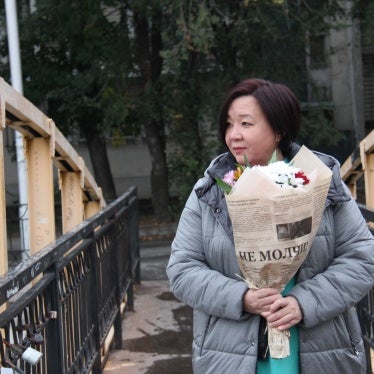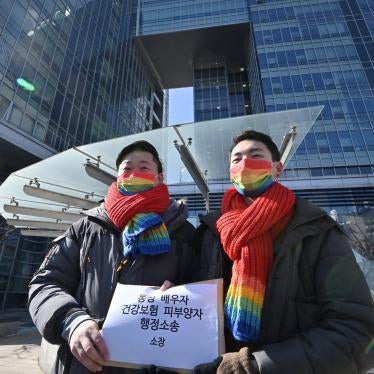A Kazakh court has delivered a guilty verdict in the high-profile trial of the country’s former economy minister, Kuandyk Bishimbayev. On May 13, the court found Bishimbayev guilty of the torment and murder with extreme cruelty of his partner Saltanat Nukenova and sentenced him to 24 years in a maximum-security prison. Murder with extreme cruelty carries a maximum sentence of life imprisonment, while torment carries a maximum sentence of seven years.
The prosecution presented evidence during the trial showing how Bishimbayev severely tormented Nukenova before she died of a traumatic brain injury and provided audio and video material, witness testimony, and forensic reports to convince the court of his guilt. Bishimbayev has 15 days to appeal the verdict from the day he formally receives it and should not be eligible for parole until 2040.
Saltanat Nukenova is just one of hundreds of women who suffer violence at the hands of their partners in Kazakhstan each year. The Prosecutor General’s office has estimated that about 80 women die annually from domestic violence in Kazakhstan, while 150 women sustain injuries amounting to grievous bodily harm and more than 4,000 incur light bodily harm.
Every woman or girl who is beaten or killed at the hands of abusive partners or within the family deserves justice, and Kazakhstan’s authorities should conduct thorough investigations into every case of family abuse and hold those responsible to account.
In June, a new law criminalizing ‘battery’ and ‘light bodily harm,’ dubbed as Kazakhstan’s “domestic violence law” or “Saltanat’s law,” named for Nukenova, will come into force. Its effective enforcement is crucial to ensuring other women in Kazakhstan do not suffer the same fate.
During the trial, which I followed, the defense made many statements blaming Nukenova for the violence she suffered. This victim-blaming is outrageous, but sadly not unusual in Kazakhstan. Nukenova’s horrific killing and the spectacle of Bishimbayev’s trial should prompt the authorities to introduce measures to prevent investigations and prosecutions of domestic violence cases from becoming spaces for victim-blaming and revictimization.
While Kazakhstan has yet to heed the calls of women’s rights activists and others to make domestic violence a discrete criminal offense, full implementation of recent changes to laws offers Kazakh officials a way to meaningfully tackle the scourge of domestic violence and take action to save the lives of Kazakh women.








